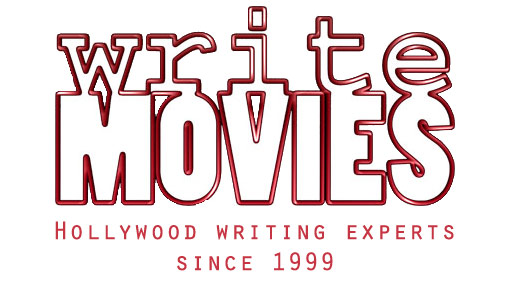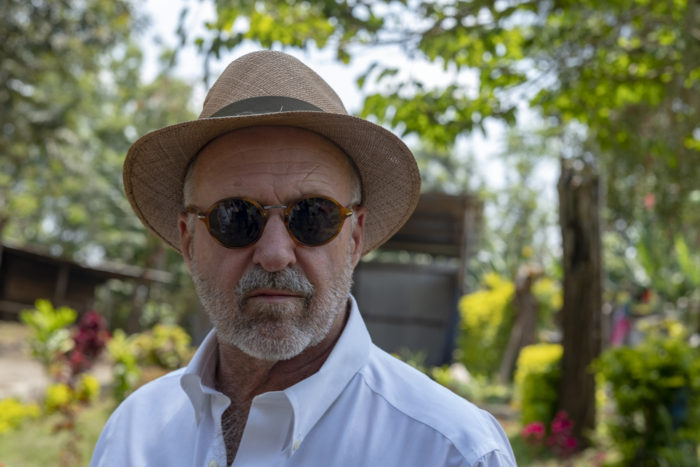
by John | Jan 18, 2019 | Updates
An update to this. After the release of the novel and film below, the Yemen had sadly been consumed in civil war for some years when I wrote this; I decided not to make reference to it at the time, because it’s not relevant to the story and also because it’s all too often true that countries like the Yemen only get attention because of bad news stories, which is a trap that this story doesn’t fall into, and I wanted to reflect that. I decided to go with the writer’s intention, which was to highlight aspects of life in Yemen that rarely receive attention in the West. But in respect of the many victims of that conflict, I’ve now decided to put these comments in as well. Civil wars are always tragic and even more so when they’re being fought as proxy wars by other powerful countries. Our condolences go out to everyone who has been affected by this conflict, and I hope that the article below may help to re-present this troubled country in a better light once more. (more…)

by John | Dec 14, 2018 | Movie Reviews and TV Reviews, Writing Insights
Alfonso Cuarón’s latest film, ROMA, has been getting all kinds of acclaim, winning the Golden Lion at the Venice Film Festival and earning three Golden Globe nominations already. Guest author Cat Tebo takes a look at what we can learn from it about writing character driven stories…
A lot of new writers fall into the trap of prioritizing plot above all else, losing the characters and, consequently, the “heart” of their story. Ideally, a script should be a marriage between plot and character. The best way to go about this is by developing characters whose objectives and agency are so strong that they inform the plot, rather than characters being used as mere devices for the storyteller to force into the mold of how they think their story is “supposed”to be.
Alfonso Cuarón’s recent film, ROMA, is a perfect example of how a character-driven film should function, with characters so compelling and nuanced that there isn’t room for heavy, convoluted plot-lines or unrealistic story details. Instead, the characters are the story.
A big part of what makes rich characterization so important to story is that the strength of a story lies in the strength of its characters. Characters give stories humanity and, in doing so, a heart. Furthermore, the desires and objectives that drive characters to act are the same ones that should drive the story forward. In ROMA, everything that happens is a result of characters exercising agency and taking action in order to get what they want: it’s one of the most basic fundamentals of storytelling. Plot movement is all about getting characters from point A to point B; if there is no character arc, there is no story.
Fleshing out your characters is often a challenging task. In creating ROMA, Alfonso Cuarón was drawing inspiration from his own childhood, and familiarity no doubt makes for a greater sense of character. Even when writers are creating characters completely from scratch, the influence of memories and experience still plays a part—there is no such thing as objective fiction, and even the most original-seeming thoughts are a consolidation of some kind of previous knowledge.
Still, there are some important character elements to consider when figuring out who your characters are. Ask yourself what their weaknesses are, what their strengths are, how they cope with obstacles, what they need versus what they want, who they appear to be versus who they really are—for every question you ask, you shouldn’t hesitate to ask the inverse of it as well. Doing this ensures that you’re considering your characters from every possible angle and are covering every aspect of them you can.
Concept is usually what sells your story in the beginning, but characters are what make it stick. Likewise,you might be able to grab an audience’s attention with an interesting premise, but you won’t be able to hold it without intriguing characters.
Take a look at more writing insights from WriteMovies by clicking here!

by John | Nov 26, 2018 | Ian Kennedy, Updates, Writing Insights
Feature films tend to get most of the glory among filmmakers, but that doesn’t mean we should ignore short film as a medium! In a new series of Insights articles, Ian Kennedy looks at the benefits of writing in this format.
There’s a reason there’s not just one but two categories for shorts at the Oscars: one for live-action and another for animated. They can be a great way of telling stories that a lot of filmmakers overlook – and that includes writers!
So why write a script for a short film? Why get one made? Well, there are actually quite a few good reasons…
- You’ve got an idea for story that doesn’t suit feature length – sometimes, even the best concept can’t be spun out into a longer screenplay! That doesn’t have to a negative, though. Use the opportunity to tell the story in short form instead.
- To improve your skills by writing under constraint. All writing is done under constraint of some kind – of format, style, etc. – but the additional restrictions of length and budget with short film can be a great chance to prove yourself. Learning to write under constraint can actually be a great way to improve your writing!
- As proof of concept for a feature film. Making feature films is an expensive business, so why not show how well your idea works by making a short based on the same idea?
- To get a production credit. Getting a script produced can take hard work, but if you’ve already got a track record in short films, it can look great on your writing CV and give producer’s faith in your abilities.
- As a personal project – just because you love your idea or are passionate about filmmaking! Be careful, though; if you’re making a short film for personal reasons, make sure that everyone on the production knows what your motives are.
Making a short film brings all sorts of challenges of its own. You’ll still need a unique concept, a well-structured story, and characters that audiences can fall in love with – but you’ve got to get it all into a much smaller space! That’s why it can be such a great test of your skills as a storyteller.
Whatever your reasons for making a short film, make sure you know exactly what they are before you begin, whether you want to use it to take the next step in your career or just because you’ve got a story you’re desperate to tell!
Take a look at our other Writing Insights articles here for great hints and tips on crafting your scripts!

by John | Nov 6, 2018 | Industry News, Movie Reviews and TV Reviews
There are plenty of things that make us wax rhapsodic about a script: an exciting story, engaging characters, dialogue that jumps off the page… But we also look at a screenplay’s commercial aspects, such as its budget and chances at the box office.
That’s why it’s always important for a writer to always keep a finger on the industry’s pulse. Figuring out what sells and what doesn’t is vital if you want to be successful as a screenwriter, and right now, what’s selling is BOHEMIAN RHAPSODY.
The Queen biopic may have had a turbulent time behind the scenes, but that hasn’t affected its success. Variety reports that the film has taken a massive $72 million internationally in addition to $50 million domestically, adding up to a tremendous $122.5 million. For a film that cost $52 million to make, that’s a major success.
Our own Ian Kennedy has seen the film already. His verdict? “To my surprise, that hit all the right notes for me. Impressive screenwriting and musical concision, to balance everything they did, acknowledge the untold, and keep a PG-13 rating.”
Musical dramas have already enjoyed success this year with A STAR IS BORN being a critical and commercial success, and being eyed by many as a potential contender at the Academy Awards. Of course, this isn’t the only genre succeeding at the box office right now – but by paying close attention to these kind of things, we know what to look for when judging scripts for our competition.
It’s also interesting to note that BOHEMIAN RHAPSODY has achieved huge success at the box office despite its mixed critical reception, with a Rotten Tomatoes score of 60%. Much like the MAMMA MIA films, there’s more to success than just what the critics say!
We’re currently nearing the end of Standard Entry for our Winter 2019 Screenwriting Contest, from just $39 until this Sunday, 11th November. Don’t forget we’re also looking for scripts to be directed by 2x BAFTA winner and 2x Oscar nominee Habib Zargarpour, too – an opportunity not to be missed!
Click here to enter!

by John | Oct 12, 2018 | Highlights, Interviews, Updates
Our Ian Kennedy was lucky enough to share a table for an evening with Steven Knight, the writer of SERENITY, PEAKY BLINDERS, TABOO, DIRTY PRETTY THINGS, LOCKE, and much more…
Steven Knight says that we’re entering a golden age of TV and film. He explained that the US system is great for writers – it’s unionized and you can make a proper living just from writing. He actually felt that there seems to be a good mystery to you if you DON’T live in LA, as long as you’re prepared to fly out every 6 weeks and do late-night conference calls.
But he explained that the Hollywood system is slow! It takes many years of gestation most of the time. If you persuade a star to be in your project, the studios know they’ll make back a certain many million dollars from it – his film HUMMINGBIRD (with Jason Statham) was in profit before it even got to the cinema. He felt that distributors often underestimate their audience and focus on young males.
Screens are better nowadays so TV drama has risen a lot. Actors like TV and it’s a writer’s medium – writers have control there, unlike other formats. Too many people are involved in making films, telling you something’s not good enough in order to justify their presence and pay. But getting actors to commit beyond series 1 of your TV series is hard because they may get film offers.
Show runners write episode 1 in the US and their team of writers – who’ve developed it with them – do other episodes. Writers rise up through the ranks in the US. British TV writing is more eccentric and individualistic – the US system is more corporate. Theatre writers are good for TV due to their ability with dialogue and are often overlooked.
Steven Knight explained that he had begun his career in the UK by writing plenty for radio, and for comedians including particularly Jasper Carrott, and writing 31 episodes of Carrott’s sitcom with Robert Powell, THE DETECTIVES. Steven was one of the 3 founders of WHO WANTS TO BE A MILLIONAIRE. He also wrote novels for Penguin, and presented DIRTY PRETTY THINGS to the BBC which led to that commission.
Then came AMAZING GRACE, for the 200th anniversary of the end of the slave trade, and EASTERN PROMISES which led from DIRTY PRETTY THINGS. The award nominations that came as a result of these put him into the US system, which he found to be great for writers. He got to direct HUMMINGBIRD which he had also written, and after that wanted to get total control of a project – and he feels that LOCKE vindicated him becoming a director.
Click HERE to check out Part 2 of our conversation with Steven Knight, in which he discusses the influences behind PEAKY BLINDERS, his writing process, and his plans for the future…

by John | Sep 17, 2018 | Our Winners, Updates
It’s time to introduce the cream of the crop from our Spring 2018 Contest! Landing in third place is an exceptional screenplay, a topical mystery-thriller set in Greece: FIRE ON THE ISLAND by Timothy Jay Smith!
Congratulations to Timothy, who also won our award for Best Indie Script and is a former Grand Prize Winner from 2010! His prizes include a year of script and pitching development worth $3200, previews of our Virtual Film School, exclusive prizes from InkTip, and more!

Here’s the logline for FIRE ON THE ISLAND:
When an arsonist threatens an important Coast Guard station on a Greek island, the FBI agent stationed in Athens arrives to investigate, finds himself immersed in a community rife with conflict, and falls in love with his chief suspect.
And Timothy’s summary of his script:
An arsonist threatens to burn down a Greek island village by blowing up a fuel tank in its harbor. Alarmed by the possible disruption of the local Coast Guard’s vital operations in rescuing refugees, Nick Damigos, the FBI Agent posted to Athens, arrives to investigate.
The arsonist has struck eleven times in as many months, each fire coming closer to tiny Vourvoulos, and each followed by a mysterious poison pen letter. The last one makes it clear: the arsonist plans to strike within days. With no clues, Nick searches for a motive that would drive someone to such a destructive act. He discovers a village embroiled in conflicts, some dating back generations, and uncovers earlier crimes—all casting a wide net of suspicion.
Gradually the mystery is revealed through the interwoven stories of a struggling restaurant owner and her feminist teenage daughter, a seductive widow and lovelorn waiter, a scurrilous priest and patrician mayor, and a host of colorful characters who paint a portrait—both humorous and soulful—of Greece where the past mingles with the present. While sorting it out, Nick’s life is threatened, and he falls in love with a young waiter who becomes his chief suspect.
Plus a biography of Timothy himself:
Raised crisscrossing America pulling a small green trailer behind the family car, Timothy Jay Smith developed a ceaseless wanderlust that has taken him around the world many times. En route, he’s found the characters that people his work. Polish cops and Greek fishermen, mercenaries and arms dealers, child prostitutes and wannabe terrorists, Indian Chiefs and Indian tailors: he’s hung with them all in an unparalleled international career that’s seen him smuggle banned plays from behind the Iron Curtain, maneuver through Occupied Territories, represent the U.S. at the highest levels of foreign governments, and stowaway aboard a ‘devil’s barge’ for a three-day crossing from Cape Verde that landed him in an African jail.
Tim brings the same energy to his writing that he brought to a distinguished career, and as a result, he has won top honors for his novels, screenplays and stage plays in numerous prestigious competitions. Fire on the Island won the Gold Medal in the 2017 Faulkner-Wisdom Competition for the Novel, and his screenplay adaptation of it was named Best Indie Script by WriteMovies. Another novel, The Fourth Courier, set in Poland, will be published in spring 2019 by Skyhorse Publishing. Previously, he won the Paris Prize for Fiction (now the Paris Literary Prize) for his novel, A Vision of Angels. Kirkus Reviews called Cooper’s Promise “literary dynamite” and selected it as one of the Best Books of 2012.
Tim was nominated for the 2018 Pushcart Prize. His stage play, How High the Moon, won the prestigious Stanley Drama Award, and his screenplays have won competitions sponsored by the American Screenwriters Association, WriteMovies, Houston WorldFest, Rhode Island International Film Festival, Fresh Voices, StoryPros, and the Hollywood Screenwriting Institute. He is the founder of the Smith Prize for Political Theater.
Timothy’s latest book, The Fourth Courier is now available for pre-order on Amazon – click here!

by John | Aug 20, 2018 | Our Winners, WriteMovies News
Our International Screenwriting Contest isn’t just for full length screenplays – we accept short scripts as well! In our Spring 2018 Contest, the winner of Best Short Script also made it all the way to the semi-finals: ROLL WITH IT by Rosie Byrnes!
As most of our readers know, writing a screenplay is tough work that takes diligence, planning, and a whole lot of hours spent typing. It might seem like writing a short script is easier, but it brings with it an entire set of challenges you won’t find elsewhere. Imagine trying to cram a 120 page story into 10 pages and you’ll see how difficult it is!
Congratulations to Rosie for winning in this category; her script charmed us with its rich story, likeable characters, and colorful concepts. She now receives a copy of our Confidential Studio Manual and exclusive previews of our Virtual Film School as her prizes, plus a set of Development Notes to give her professional feedback on her work.
Read on to find out more about this short script which captured our hearts: ROLL WITH IT!
Here’s Rosie’s summary of her script…

“Max is the king of the roller disco, and he knows it—that is, until the spunky (and far more admirable) Lucy arrives at the rink. His crown threatened, Max challenges her to the ultimate dance-off. But he’s in over his head, and finds that he’s head over heels for the gal who knows what it means to be groovy.”
And a short biography of Rosie, too…
“Rosie Byrnes is a writer, a second grade teacher, and a notorious ice cream lover. Originally from Colorado but currently residing in Tainan City, Taiwan, Rosie has spent most of her life writing outlandish stories. Only after following her crush into a college screenwriting class did she realize that, hey, it’s actually pretty neat. Her most recent passion project is a feature-length screenplay about Bigfoot (who’s a big softie, deep down), and she currently holds the “Worst Female Bowler” title in her hometown’s championship.
Rosie can be found on Twitter via the username @rosiebwrites.”
Rosie has won previews of the WriteMovies Academy, and Phase 1 opens on September 15th – join now to take your work to take your screenwriting and production skills to the next level!










